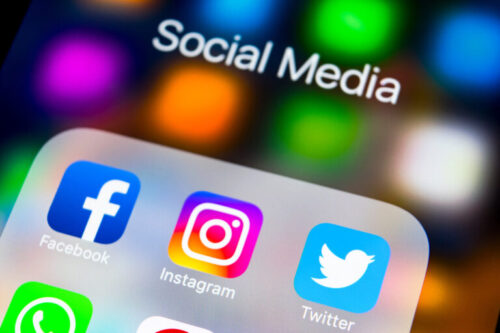The Impact of Emoji Use
The rise and spread of the internet, especially social media, has changed a lot of aspects of our daily lives. The way we do business, how we interact with our family and friends, and how we use language to communicate with other people.
One effect of social media is the ability to interact and communicate with many people. Given the sheer number of communications people send out and receive daily, the language used in social media has evolved. Since most users have a short attention span when scrolling social media, messages here tend to be brief, concise, and highly expressive.
This has led to the spread of acronyms, emojis, emoticons, and other adaptations that make it easier and quicker to communicate on these platforms.
While they increase the convenience of communicating with people on social media, these changes also impact how the younger generations learn and develop English language skills.
In this article, we’ll go in-depth into how social media affects communication, focusing on the impact of emojis on learning English.
The Rise of Emojis
Without a doubt, emojis have revolutionised the way we communicate with each other. A picture is worth a thousand words and having that 😊 face to accompany a message will add a lot of meaning to it and make it easier for the recipient to understand the mood and vibe of what you’re trying to say.
Emojis originated in Japan around 1997, where they were used to convey expressions and feelings. Currently, there is a large catalogue of emojis you can use in your communication, and the list keeps getting larger as messenger apps continue to update them.
Currently, after English and Mandarin, emoji is the third most used language. According to the BBC, Emoji is now the fastest growing language in the UK and evolving faster than ancient forms of communication, such as hieroglyphics. While more than 1.5 billion people speak English, 3.2 billion use the Internet, three quarters of them through smartphones equipped with emojis.
Given the great rise and widespread use of emojis, it is worth wondering how they’re affecting the English language, specifically the ability of the younger generation to learn and understand it.
Let’s dive into some of the advantages and disadvantages of this revolutionary form of communication.
Pros of Emojis 😄

Below are some of the positive impacts of using emojis in communications, and specifically in the English language:
Making Language More Accessible to Different People
Truth be told, most people do most of their reading on social media. This is because the content is often short and highly entertaining. As such, social media platforms have made more people access and learn the English language.
For instance, a German parent browsing Facebook will often run into posts or videos in the English language. If they’re interested, such exposure will introduce them to some common English words and phrases, giving them an excellent steppingstone to learning the language. Emojis come in to help them understand the context better, making the learning process smoother.
Another example is with school kids. While they may not be too engaged in reading books or other written material to improve their grammar and literature skills, content on social media tends to appeal quicker and to be more easily consumed by them.
While scrolling through hundreds of posts, they’ll interact with some new words and phrases, which will help them build their vocabulary and language skills. In this case, emojis complementing complex phrases will make it easier for them to remember and apply them in other types of communication.
Emojis Save Time
Of course, typing the words “I love you” will take longer than simply clicking the 💑emoji on your phone. Communicating using emojis allows users to summarise a rather long and complicated sentence with just a few pictures. For instance, if someone sends you an offensive text, it is easier to send them this 😡 than having to explain to them in detail that they have made you angry.
Emojis Reduce Ambiguity of Language
In written language, it’s not easy to gauge what the other person is trying to say. A sentence may warrant a different response depending on the context and the sender’s intention. In most cases, without complementing with emojis or lengthy explanations, it can be tricky to know the appropriate response to a message. Take the case of the message below:
“Hello man, today was crazy. I fell down the stairs and banged my head on the floor.”
When you receive such a message from your friend, there are two possible responses depending on how they want you to take it. First, it could be on a serious note and they want you to show concern for their wellbeing.
On the other hand, they may want you to find it funny that they were in such an accident and laugh along with them. Without an emoji to accompany the text, telling the difference can be challenging. On the other hand, if the sentence was like the one below, there could be no mistaking how they want you to react:
“Hey man, today was crazy 😅. I fell down the stairs and banged my head on the floor 😄😄”.
Emojis Add Expression
Expressing yourself with words is not an easy task for everyone. Evoking the intended feeling in the recipient is often tricky, and most people need all the help they can get. With emojis, you have a catalogue of emotions from which to choose.
If someone types a statement that worries you, you can easily express this by telling them what you mean, then adding the 😟 emoji. In the same way, you can easily convey happiness, anger, shame, and an array of other emotions without having to type unnecessarily long paragraphs.
Cons of Using Emojis

Just like every cloud has a silver lining, every good thing has a negative side. Below are some of the negative ways emojis have affected the English language.
Emojis Deteriorate Vocabulary
The best way of learning something is by practicing it daily. Without emojis, the younger generation would have to type longer sentences to express feelings they could have easily summarised using an emoji. This way, they would gain experience using more words in their vocabulary, thus improving their language skills.
The widespread use of emojis means more people use fewer words in their conversations day-to-day, which effectively leads to the deterioration of their vocabulary.
They’re not Preferred for Formal Correspondence
Formal communication is the preferred way for most organisations to handle their business. Emojis are considered informal and are not preferred by most organisations for business communication. Since most youngsters mainly use informal communication, it can be difficult for them to adjust to business-appropriate language when it’s required of them.
They’re Hard to Judge
Emotions are usually easy to fake in written communication, and emojis make it easier to cover them up. It is hard for the person on the other end to judge the intentions or feelings of the sender. This makes it easy to fall prey to manipulators and impersonators.
They Increase Generational Language Gap
There’s a great divide between how elderly people and youngsters communicate with each other. Emojis are a very young form of communication and are often difficult for elderly people to understand. Therefore, the widespread use of emojis makes it even trickier for different generations to communicate and interact effectively.
Final Thoughts
It’s clear that social media has had a huge impact on the English language and how people use and understand it. This impact is especially pronounced among the younger generation who are still trying to learn the language.
While you can’t prevent them from using social media, there are some measures you can take to ensure they still gain and retain the English language skills required to communicate effectively in the real world.
At Dialogue, we offer English language training that will equip you with the necessary skills to thrive in the international marketplace.
Contact us today to learn how we can help you take your English skills to the next level.

